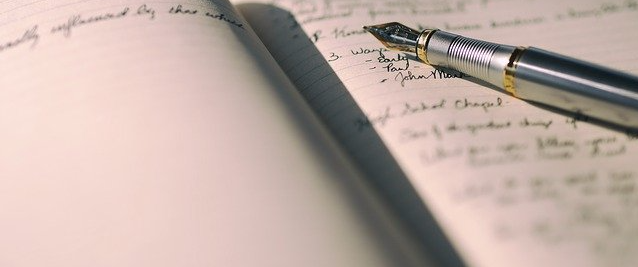Cheap Therapy
Something I've toyed with for a great part of my life has been journaling. First, as a tween with my "locked" diary, and later with jottings in various notebooks/journals.
Everytime something seemed to be going awry in my life I picked up a pen, grabbed a notebook, and spilled it all out. Nothing ever changed. I didn't come up with monumental decisions or revelations. But it felt good.
As a senior, with my life shifting under my feet (sometimes literally), I'm back to journaling. I've seen references to journaling in several articles on senior life changes and looked deeper into it.
The upshot of it is that journaling is cheap therapy. One psychologist I came upon stated that it was a simple, low-cost way of improving your mental health. I wasn't sure that statement really resonated so I looked further.
Dr. James W. Pennebaker, apparently a major player in the field of mental health, seniors, and journaling, did several actual studies on it and found that it may help lower blood pressure and heart rate. He has also written that it is helpful for seniors with such ailments as sleep apnea, RA, and cancer. And for mental health? I can attest to this one - it stops brooding.
Journaling is not a traditional diary. Although if you are a night writer, it may contain a running agenda of your day, that is not its purpose. A journal is where you examine your emotions about things, incidents, people, and your reactions to these. A journal can be either the traditional paper-based type, or if you are techno inclined, kept electronically.
Typically, people choose one of two kinds of journaling. The first is stream of consciousness. You just spill it all in writing - the good, the bad, and the ugly. Often people time these, devoting no less than 10 minutes to the activity. The second type of journaling is a bullet journal. This is sort of a combined day planner, diary, and written meditation. You write in short sentences about a wide variety of things.
I've used both styles. For where I find myself in time and psyche, a bullet journal is working well. I've found that journaling in the morning now, without the pressure of a mad dash to school looming, works for me. I can set some goals for the day, discuss with myself why I did or did not meet the goals from the day before, thrash through anything negative swimming around, and generally get my mental juices flowing. I place no restrictions on myself for how long I write nor for a number of pages.
When you first start journaling, it may feel like work. As with most work, you will find ways and reasons to put it off. Don't let that thwart you. If you miss a day or two, who cares? Pick it up and go forward again. Eventually, it becomes a soothing part of whatever time of day you choose to journal.
Some things to note - there is no right or wrong way. If you are so disposed, add doodles, drawings, write it as a letter, whatever. When dealing with something major, use it as a brain drain. If you get stuck, run to Pinterest and look up positive quotes and use one as a jumping off point.
Journaling is a journey. Take it and let it rock you along the next part of your path. That's my goal with my journal. I trust that it will carry me through the smooth times as well as the rocky ones.
